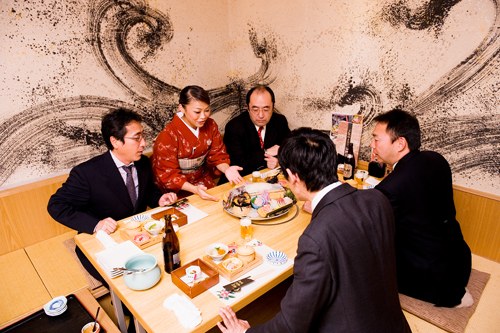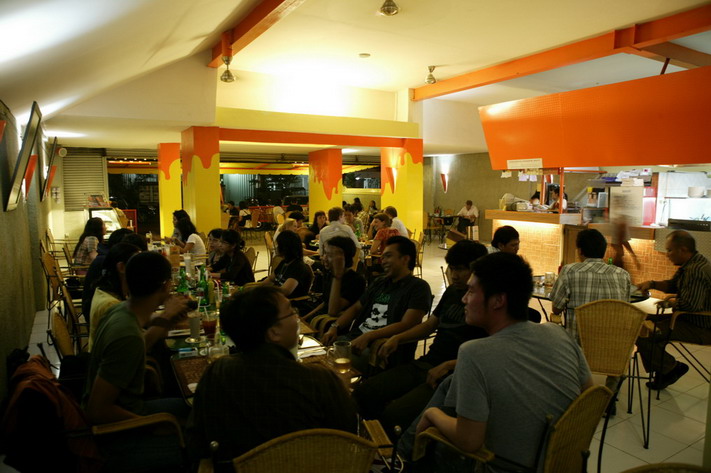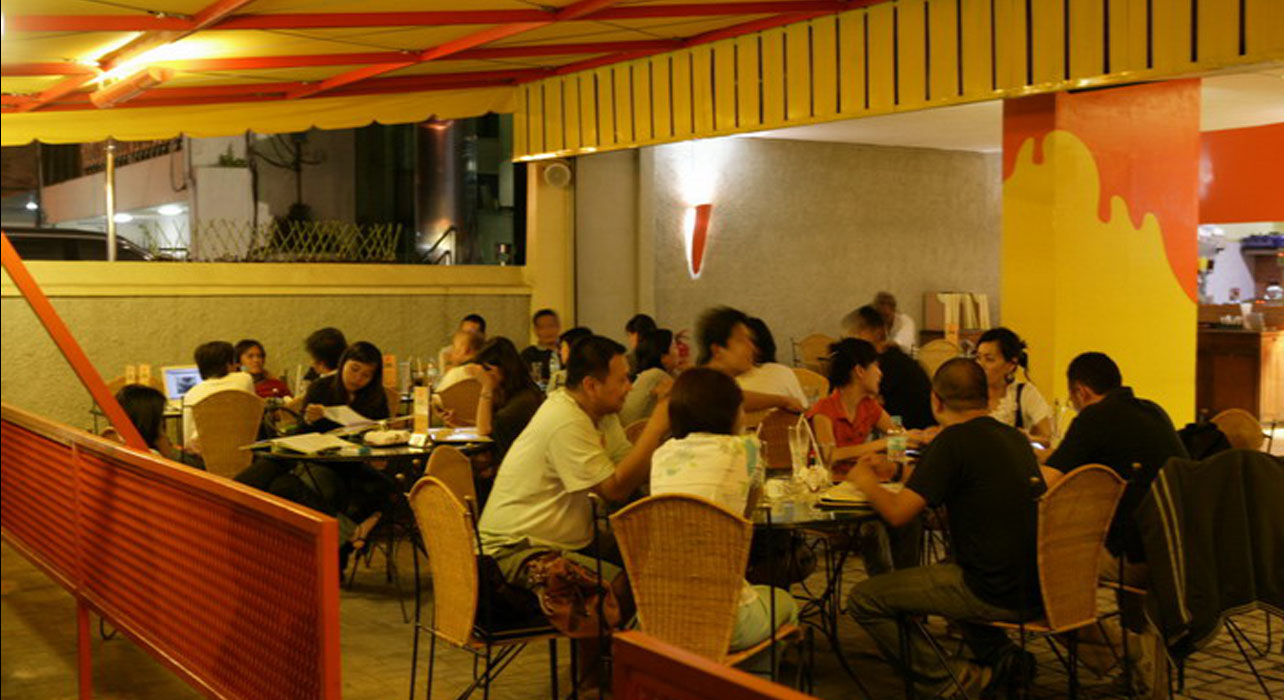Learning Guanxi: The Challenge of Leadership across Cultures

Globalization: that’s the ticket. At least for our corporate masters. The thrust of enterprise over the past six decades has been to optimize every aspect of business operations, in order to extract maximum value for the shareholders. Sound cold and brutal? You bet. From the 1970s onwards factories across the USA were closing up, as cheap labor, tax breaks and other lures drew companies abroad. “Can you give me a China price?” someone would ask with a straight face. That’s a joke, if a bitter one. By definition, you go out and source materials and production where costs are lowest. Tighten procurement, streamline setup and arrange manufacturing integrated with “just-in-time” delivery. Outsource as much as you can and play your vendors off one another, for the best price and conditions.
It’s the logical extension of capitalism and it works wonders, particularly for the corporate princes and their obedient servants in government. But designing in France, manufacturing in China, distributing through channels established by Japanese shôsha or Chinese state firms – it all requires linguistic, behavioral and cultural talents that are traditionally rare in the rough’n’tumble world of business. This is particularly urgent in these changing times.
Particularly in environments with a low level of trust …
Intercultural Management Demands New Skills
By way of illustration, let’s consider some real-life situations, with names changed around to protect the guilty (pretty much covers all of us, at some point) and the innocent (= naïve?). Some of these case studies date from several decades ago, before globalized business really got going in Southeast Asia. Others are, alas, still relevant, as foreign investors, their expectations stunted and hopes shattered, return home in tears.

Case Study #1: The Alcoholic Icebreaker
The busy German executive receives an inquiry from a Japanese firm in a complementary line of business. Let’s say the other firm manufactures the raw material for the finished product which the German company specializes in. The two companies could set up a joint venture in a third country and expand sales for the benefit of both parties.

The German arrives in Tokyo, energetic and full of anticipation. He checks into his hotel and meets his Japanese counterparts. Visits to the factory and tourist sites, lunches and dinners with various management and technical personnel… three days pass and nobody on the Japanese side has started to talk contracts or technical agreements.

Unhappy and frustrated, the German complains to the young fellow assigned to be his translator in Tokyo. “What’s wrong with these people? I came here to talk about a joint venture, doing business in a way beneficial to both sides. But it’s been all wining and dining and happy times. I end up drunk three nights in a row. But nothing gets talked about.”
He frowns and stares at the Japanese man. “I didn’t come here to be their ‘friend’. When do we start talking business?”
The young Japanese man smiles. “You have been ‘talking business’ or more precisely building a bond of business trust since the first time you met Company people. Japanese are very careful about who they agree to collaborate with, either socially or professionally. They have been looking you over and letting you look them over.”
The German frowns. “Does it have to be this way? Can’t we just let our lawyers write up a contract?”
“Not if you want a smooth-running, mutually-trustworthy arrangement. Contracts can be ignored or broken.
“I can tell you that the senior Company people are very impressed with you and that much more progress has been made than you are aware of.” The German looks surprised.
This is all new to him, although he has done business in Africa, the Arab East and even Australia. It begins to make sense.

Case Study #2: The Thirty-Million-Dollar fork licking
When the German executive returns to Hamburg and recounts his successful trip to start the ball rolling for a JV, he meets a colleague who has a different story to tell.
“We were considering opening up a distribution and service center in the American Midwest. But it’s all cancelled. I cannot stand to do business with such vulgar people.
The other senior executive looks puzzled. “I thought there was an opportunity there.”
“Not with people who lick their knives at the table.” He makes a disgusted face. One simple breach of table manners – a thirty-million-dollar deal canceled, down the tubes.

Case Study #3: The Show must go on: ‘Potemkin Village’
A sizable Indonesian construction company buys out a competitor. Management looks over the new acquisition and decides they have too much heavy equipment – now how to turn those graders and fork-lifts and bulldozers into some ready cash?
They place ads in relevant professional journals, spread the word through their contacts. And they get a nibble, a nice inquiry from overseas.
A Chinese construction company senior executive contacts the Indonesians and pays a visit to their sites.
“I like the range of vehicles you have to sell. Can’t go wrong with this Japanese equipment. Our Chinese brands are just not as hard-working and reliable. How much do you want for the lot?”
The Indonesian CEO, impressed and surprised by the suddenness of the decision, says “Well we were thinking about twenty-five million dollars.” He braces himself for some hard-nosed Chinese hammering, as the Middle Kingdom folk are known for their toughness and persistence in getting the best price when they buy.
But no.
“You’ve got it. I’m a busy guy but here’s what I’ll do. Here’s a check for five million – on HSBC, payable immediately – and I’ll get the rest together soon. But I really need to have this operation and the vehicles going quickly. How soon can you ship this equipment to Shanghai?
“And by the way, when are you going to come visit my firm in Guangzhou?”

The Indonesian CEO, impressed, decides to take him up on the offer. It will also confirm the trustworthiness of his counterpart. “Anytime you are available. How about next week?”
The Chinese man frowns. “Give me a couple of weeks to get ready for your visit.”

To make a long story short, the Indonesian CEO, normally careful about who he does business with, visits Guangzhou. He is taken around to all the lovely tourist sites, wined and dined, and visits the brand-new office building where his customer has twenty or so mostly young employees busy on projects – computers humming, people coming and going…
“When can you pay us the remaining twenty million?” he asks the Chinese CEO, a bit anxiously. It’s a considerable amount of money to have hanging, after all.
“I’m still arranging bank loans – we want to spread this out among several of our local and state banks,” the other man assures him.
The Indonesian, still a bit uneasy, says his thanks and returns to Jakarta.

Nothing.
The construction equipment has all been shipped to China, as agreed, but now there is only silence from his jovial erstwhile customer. Telephone calls, e-mails, social media: all disappears into the void.
Alarmed, the Indonesian CEO, together with several of his executives, rushes back to Guangzhou, ready for a confrontation.

Can you guess the rest? The office building sits empty and abandoned. No one in the industry has any idea of who the Indonesian construction chief is talking about. It turns out to have been an elaborately pure theatrical presentation – expensive but worth the effort to swindle the unfortunate Indonesian company out of twenty million bucks.
An expensive lesson for the Indonesians, who were just too anxious to unload their construction gear. They did not check up on the other fellow properly, through the network of business, ethnic and social contacts. That’s how the Chinese themselves do it, before extending such trust.
The westerner pipes up. “But didn’t he contact the police? How about going to court against the other fellow?”
“The contract!”
Smiles all around, ironic smiles. Nobody wants to sue in East Asia. Avoid going to court whenever possible.

With a tiny number of exceptions – mostly where the British colonialists set in place their legal system, like Hong Kong, Singapore and Malaysia – the courts are what are delicately referred to as an “auction system”: whoever pays the judges off the most wins their case.
And even if you win, how do you collect? One ESL teacher working in Indonesia won a verdict against a major Christian university in West Jakarta. The court ordered the institution to fulfill the terms of the contract. The ostensibly religious educational institution never paid up. Time passes; the hapless bule had no way to force them to do so: he lacked the military or local mafia muscle to intimidate them. That’s how it worked during the Soeharto dictatorship, and it pretty much continues this way into our modern Reformasi (“repot nasi”) era.

Case Study #4: “Hands-on Management” does not imply acting like a prison warden
When this writer asked his Indonesian-Chinese client, a sales executive in a company making BOPP packaging, about the matter of micro-management of office staff and line workers, an enlightening discussion ensued.
“Yes, we have to watch our local workers very carefully, and check everything they do.”

I frowned. “That’s what is known as ‘micro-management’ in the west, and it is generally considered a poor idea. If you give an employee responsibility without authority, and leave them alone to do their job, they’ll get frustrated and either lose their motivation and just act like robots – or quit.”
The ethnic Chinese-Indonesian executive shakes his head. “That is not our experience with Indonesians. We have to be very careful about everything our staff does. That also makes them feel more comfortable and confident”.
Aha. “I can see your point now.”
But it’s different in the west. And even in Indonesia, with certain ethnic groups that inevitably gravitate to high positions and success.

I ask, rhetorically, “Who are all the lawyers?” That’s an easy one to answer: the Batak.

These enterprising folk from North Sumatra, who started off eating the German missionaries and ended up converting to their faith, have the stalwart, enterprising, bold attitudes appropriate for a legal, or business, or medical position. They may comprise less than 1% of the population, but their success is considerably grander.
Other ethnic groups reveal their own strengths and weaknesses.

Case Study #5: Never Admit You’re Wrong – Never Take Responsibility
Sitting down for drinks, tasty eats and insightful conversation at YaUdah Bistro with a Japanese executive on a slow afternoon. It’s just after four pm and a pleasant wind is blowing in off the Java Sea. There are few patrons at the Bistro, so we can talk openly.

He is a senior manager at a local joint venture manufacturing firm in Jakarta, only arrived a few months previously. We are speaking Japanese, and know each other well enough from my time in Japan to share our views and opinions frankly.
“You have been here a long while,” the Japanese states flatly, staring at me. “So tell me something.”
I smile. “Over thirty years working in Indonesia, yes. What do you need to know?”
He does not smile. “I deal with my Komisaris on a daily basis. These are men mostly in their fifties and sixties. Experienced senior executives.”
“Yes, go on.”
“Why are these old men so childish?”
That stops me for a moment. “Why do you ask that?”
“Something goes wrong but nobody wants to face up to it.”
I began to see what he was getting at. “Childish.”
“Your Commissioners.”
“And my managers. It’s mostly the men – if a woman fails to do something properly, she’ll usually apologize and then all is forgiven and forgotten.”
He took a swig of locally-produced German beer.

“it’s the men who act like children.”
I sighed. “You can put this onto the local culture.” (I took a sip of my own beer and thought of my dear old mother, who never approved of us drinking at home, and would snarl “Pour it back in the horse”.)

“I was driving one day down Jalan Sudirman and came up behind a bus with a big phrase pasted on the back, cut from stickers. It said ‘BUKAN SALAHKU’ which I thought would be a tasty national slogan for Indonesia.”
“And that means…?”
- “‘It’s not my fault.’
- I didn’t know anything about it.’
- ‘He must have forgotten. Ask her.’
- ‘Look – they knew about it too.’ ‘It must have been that technician who came by this morning. He stole it.’
- ‘Who said that? I have no idea about it.’”
Now a look of acknowledgement came over the Japanese man’s face. “Just like a child.”

“It’s how males here are raised. ‘Never admit you are wrong. Never say ‘Sorry’. Always try and find a scapegoat.”
He raised his eyebrows. “And if nobody wants to take the blame?”
“Ah!” I smiled and pointed upward. “Then you blame the Divine. ‘Why did you do this to me, God?’”
He sighed. “That’s why it can be convenient to be faithful. We Japanese have pretty much abandoned religion.”

Well dear reader’n’eater, you can keep the faith in the delicious, hygienic, right-priced fare at YaUdah Bistro, where fine classic Euro-fare and Asian eats are available.

Alas, at the moment the Menteng facility only serves Takeout / Takeaway, as the nasty old pandemic has dug in and shows no signs of going away. Our snazzy Serpong branch is still open for business, as usual, with casual outdoor dining in the refreshing breeze (for the refreshing smokers) and a cool air-conditioned section inside (for the non-smokers to triumphantly non-smoke).



